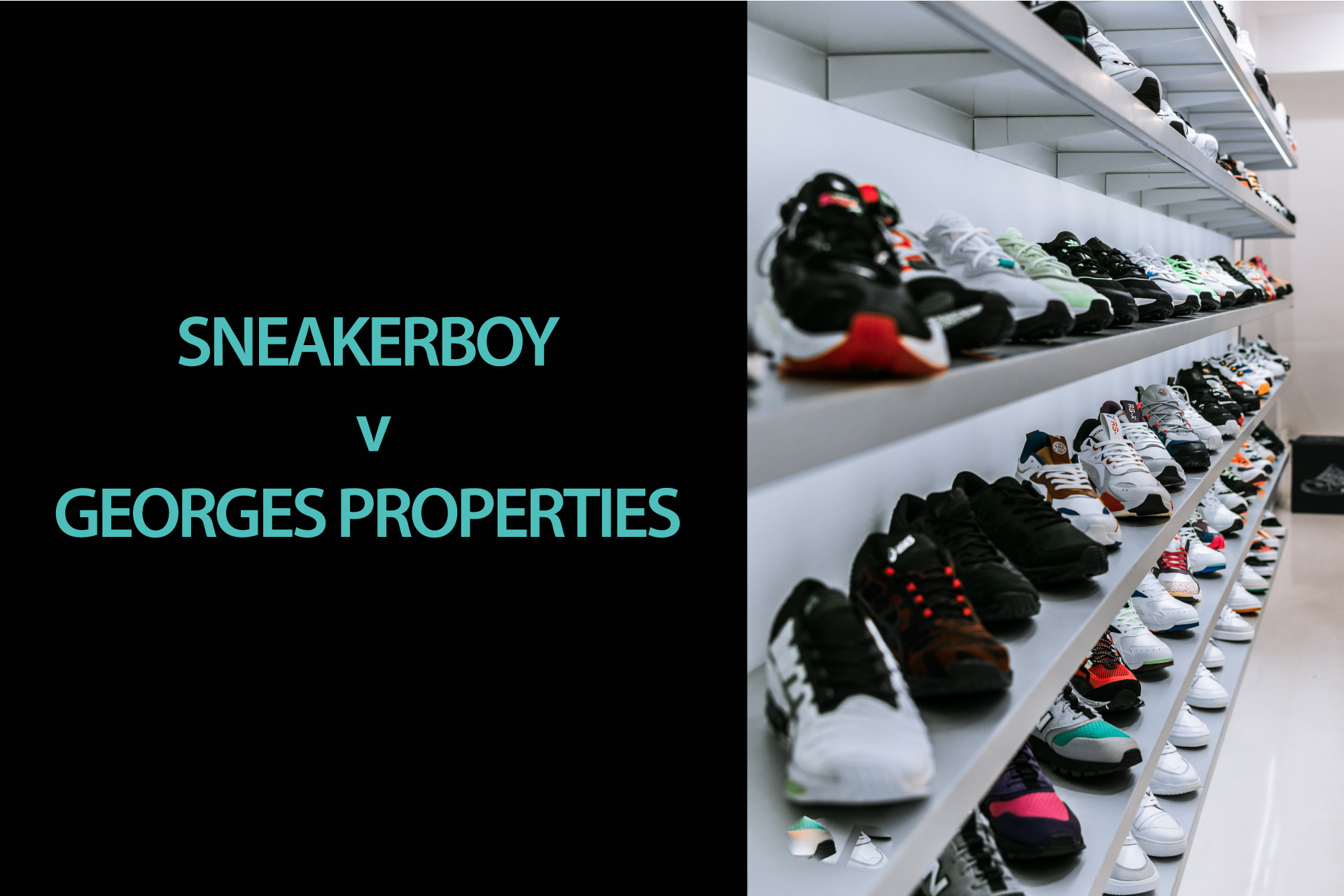COVID-19 has changed the commercial leasing landscape, at least for the foreseeable future. It’s critical that tenants and landlords remain on top of legislative changes.
As it stands, subject to meeting certain eligibility criteria, the Retail & Other Commercial Leases (COVID-19) Regulation 2020 (‘Covid-19 Regulation’) stipulates that termination or repossession for failure to pay rent or outgoings cannot take place during the pandemic. Whilst the pandemic prescribed period was set to end on 24 October 2020 (now 31 December 2020), the NSW Supreme Court recently determined that retailers who received rent relief under the federal government’s COVID-19 mandatory code of conduct should continue to enjoy concessions after the Covid-19 Regulations expire in October and deemed 6 months to be a reasonable recovery period. This Supreme Court decision will impact thousands of small and medium-sized retailers who renegotiated leases with landlords under the COVID-19 Regulation.
On 23 September 2020, the NSW Government announced it will extend the operation of the COVID-19 Regulation to 31 December 2020. The extension means that commercial landlords and tenants have an additional 4 months to renegotiate the terms of their leases. Tenants who wish to request further rent relief must re-establish their eligibility to receive relief. Landlords who provide rent relief to tenants in financial distress from October to December 2020 will be eligible to receive up to 25% land tax concession.
Supreme Court guidance in Sneakerboy – A history of rent owing and then a pandemic:
The NSW Supreme Court decision involved luxury sneaker and streetwear retailer, Sneakerboy, who from March 2016 onwards has had a history of owing rent at its Sydney premises to its landlord, Georges Property Pty Ltd (‘Georges Property’). Between March 2016 and March 2020, there had been 52 communications between the parties regarding overdue rent. In these communications, Georges Property warned that re-entry and termination of the Lease were potential outcomes if Sneakerboy failed to comply with the terms of their Lease.
The landlord served 5 formal notices to remedy breaches between May 2017 and October 2019 – the last of which was for rental arrears of $95,387.45 for July through to September 2019. It’s safe to say that Sneakerboy and Georges Property already had a somewhat rocky tenant/landlord relationship. Then COVID struck.
From February 2020, Sneakerboy experienced a significant drop in sales. The retailer already owed rent from January and between January and February, Sneakerboy accrued $65,463 outstanding rental payments.
On 12 March, it reached out to Georges Property, seeking permission to pay rent owing in instalments throughout March and April, including a partial payment made on that day. Sneakerboy failed to make its next payment on 16 March.
The Federal Government restrictions in force from 20 March limited Sneakerboy’s ability to trade, with only 7 customers permitted within the shop front at any one time.
On 23 March, the Director of Sneakerboy decided to close the physical shop front due to the COVID restrictions. Georges Property became aware of the closure 2 days later, when it discovered Sneakerboy removing its stock. When contacted by the landlord, the Sneakerboy cited COVID restrictions and an 85% drop in sales as the basis for the decision to remove the stock for the purposes of online sales and security.
The landlord deemed the removal of stock as an abandonment of the premises and on 25 March 2020, it issued a notice of termination and re-entry of the premises. On that same day, the COVID-19 Legislation Amendment (Emergency Measures) Act 2020 (NSW) also came into force.
So, what did this mean for Sneakerboy and Georges Property?
On 20 July, Sneakerboy launched legal proceedings seeking relief against forfeiture of the lease.
In the initial Judgment handed down on 31 July, the Court found that Sneakerboy’s removal of stock and equipment from the premises was not an abandonment of premises. As such, the only remaining reason for termination of the lease was the rent owing, which the Court found was not permissible as a result of the NSW Government’s legislative amendments in response to COVID-19. Consequently, the Court permitted Georges Property to call on a bank guarantee of $253,668.90 (10 months rent, plus GST), but granted Sneakerboy relief against forfeiture of the lease. Sneakerboy was also ordered to pay Georges Property’s legal fees and provide a replacement bank guarantee.
In ordinary circumstances, this outcome would be uncontroversial, however in this case the COVID-19 regime impacted the amount of the rent payments payable by Sneakerboy following reinstatement of the lease, consequently varying the amount of the replacement bank guarantee required. The parties were unable to agree on the amount of the replacement bank guarantee, and so sought further Court orders.
In a subsequent decision handed down on 26 August, the Court applied the NSW COVID-19 regime to the facts to determine the amount of the replacement bank guarantee and the appropriate timing for production of it by Sneakerboy. In doing so, the Court accepted Sneakerboy’s submission that it should be entitled to a reasonable recovery period from the impact of Covid-19 of no less than 6 months.
What are the implications for commercial leasing disputes?
Landlords should be very careful when considering whether it is appropriate to terminate a lease during the current pandemic. Additionally, even post-operation of the COVID-19 Regulation, landlords and tenants should both consider what a reasonable recovery period may be when negotiating outstanding rent and payment arrangements. Given the Court accepted Sneakerboy’s submission that a “subsequent reasonable recovery period” should be “no less than 6 months,” it may be prudent for other landlords and tenants generally to adopt this as a guide, although each case will turn upon its particular circumstances.
If you’re a commercial tenant or landlord currently engaged in a rental dispute, please contact me to discuss the implications of Sneakerboy Retail Pty Ltd trading as Sneakerboy v Georges Properties Pty Ltd [2020] NSWSC 996, Sneakerboy Retail Pty Ltd trading as Sneakerboy v Georges Properties Pty Ltd (No 2) [2020] NSWSC 1141, and how I may be able to help you on 0402 136 083 or emacfarlane@macfarlane.law.





